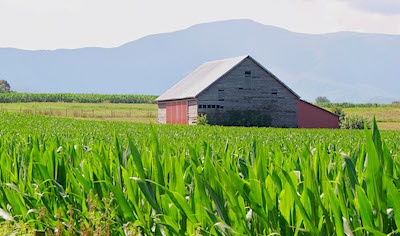
~ Press release issued by the Virginia Farm Bureau Federation
RICHMOND — A new report by the U.S. Department of Agriculture shows the number of Virginia farms remained the same from last year, bucking a national trend of farm declines.
According to the recently released USDA Farms and Land in Farms 2022 Summary report, the total number of farms in Virginia in 2022 was 41,500, unchanged from 2021. The total Virginia land in farms also remained unchanged from the previous year, with 7.7 million acres and an average farm size of 186 acres in 2022.
“The number of Virginia farms has been trending lower since at least 2012, so maintaining the number of farms in 2022 is good,” said Tony Banks, senior assistant director of agriculture, development and innovation for Virginia Farm Bureau Federation. “It may speak well of our diversity among the numerous farm types here, or it may be a reflection of improvements in on-farm gross margins coming out of state and federal COVID-19 response.”
While the commonwealth’s unchanged farm and farmland numbers are welcome news, it’s too early to tell if the overall trend in farm declines is slowing or reversing in Virginia, Banks noted. Since 2015, Virginia’s farmland has shrunk from approximately 8.1 million acres to 7.7 million acres, with around 3,200 farms lost.
“Aside from increased competition from development and solar energy projects and the aging farmer population, the last three years have witnessed tremendous pressure on farm margins and expenses, as well as additional supply chain disruptions due to the war in Ukraine,” Banks explained.
Nationally, the number of farms in 2022 is estimated at 2,002,700, down 9,350 farms from 2021. Total farmland also decreased, by nearly 2 million acres since 2021, resulting in 893,400,000 farmed acres last year.
The overall declining rate of farms and farmland is an issue that weighs heavily on those involved in farming. Banks noted that factors like economic pressure, families leaving the farm and high operating costs cause many producers to shut down. Additionally, high startup costs prohibit many from entering farming.
“It’s worrisome that we continue to lose farms, especially mid-sized farms,” he said. “We saw what can happen when our food system relies on a few businesses to process and distribute food. We need to maintain as much production diversity and flexibility as we can. Otherwise we can expect to see greater concentration of food production at the farm level and a greater potential to weaken our country’s food security.”
•••
RELATED ARTICLES
Skyrocketing temperatures leave budding fruit trees vulnerable to frost
Agricultural Safety Awareness Program Week observed March 6-10
Registration deadline for drinking water tests in Page County is March 9
Extension Office to offer 4-week workshop on ‘Developing a Whole Farm Plan’ starting March 16



Be the first to comment